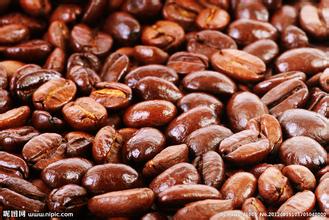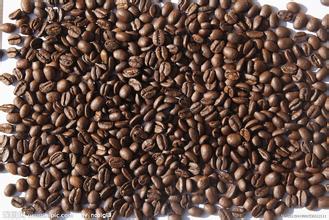Flavor description characteristics of Ethiopian honey kiss coffee beans introduction to the taste of variety treatment in producing areas
Flavor description characteristics of Ethiopian honey kiss coffee beans introduction to the taste of variety treatment in producing areas
Essel's coffee should be the only pollution-free green organic coffee in the world. Ethiopia still uses traditional planting methods to artificially care for coffee trees, and fertilizers are mainly deciduous leaves, withered grass and animal manure, replacing harmful pesticides and herbicides used on a large scale in other coffee-producing countries.
Ethiopia now produces & # 39 Mocha-Mocha' Coffee is the most famous. In the West, Mocha is not only the name of the coffee variety, but also refers to the method of brewing coffee or the utensils for brewing coffee and special conditioning methods. Mocha coffee beans are mostly dried, but there are also so-called gourmet water washing beans. Mocha coffee beans are famous for their sour taste, slightly sweet, slightly alcoholic aroma and low caffeine content.
In 2009, the coffee was named after "Nectar from Shakisso", meaning it has the same flavor as nectar from Ethiopia. Nekisse is characterized by a creamy and smooth taste, a strong berry sauce, and some batches even have a mixture of chamomile and a variety of tropical fruits. Although it was originally grown in the Shakisso producing area, the later Nekisse came from the Walliga and Sidamo producing areas, but retained the name. We think Honey Kiss in Sidamo retains its original nectar and berry flavor, which distinguishes it from all other coffees from Ethiopia.
Located in the most advantaged natural conditions, Ethiopia produces unique high-quality coffee every year. Ethiopia's coffee growing cycle brings the joy of harvest to the country every year. Beautiful white coffee flowers will bloom and bear fruit every year from March to April. Only the reddest and ripe fruits are selected as coffee ingredients between September and about December. The export of new coffee begins in November or December every year.
The coffee market regulatory body in Ethiopia is the Ethiopian Coffee and Tea products Administration. There are two auction centers in the country, one in the capital Addis Ababa (Addis Ababa) and the other in Dire Dawa in eastern Ethiopia. Coffee growers wash fresh fruits or take them to private coffee processing plants or cooperative coffee washing stations. Washed and dried coffee beans are transported to a central store in Addis Ababa, the capital, where they are fully inspected and soaked, rated according to poor quality and auctioned. Coffee from state-owned farms has to follow the same procedure after being processed by the farm. Buyers who participate in the auction will carefully observe the coffee beans and their soaking proof before bidding. The bidding takes the form of the buyer shouting out the price.

Important Notice :
前街咖啡 FrontStreet Coffee has moved to new addredd:
FrontStreet Coffee Address: 315,Donghua East Road,GuangZhou
Tel:020 38364473
- Prev

Introduction to the processing Manor of the Grinding scale production area of Pacamara Coffee beans in El Salvador
El Salvador Pacamara coffee beans grinding scale production area treatment Manor in El Salvador, Cuscarpa region is rich in coffee beans are the best, its weight is slightly light, aromatic, pure, slightly sour. Like Guatemala and Costa Rica, coffee in El Salvador is graded according to altitude, and the higher the altitude, the better the coffee. The best brand is
- Next

Introduction of Katim Coffee Variety characteristics of Coffee production area treatment Manor
There are two native species under Arabica Arabica: iron pickup Typica | bourbon Bourbon, another gene mutant: Kenya SL28, SL34 | geisha Geisha, etc., as well as Arabica intraspecific hybrids (such as the popular Pacamara), and Arabica and Robusta hybrids, all listed
Related
- Detailed explanation of Jadeite planting Land in Panamanian Jadeite Manor introduction to the grading system of Jadeite competitive bidding, Red bid, Green bid and Rose Summer
- Story of Coffee planting in Brenka region of Costa Rica Stonehenge Manor anaerobic heavy honey treatment of flavor mouth
- What's on the barrel of Blue Mountain Coffee beans?
- Can American coffee also pull flowers? How to use hot American style to pull out a good-looking pattern?
- Can you make a cold extract with coffee beans? What is the right proportion for cold-extracted coffee formula?
- Indonesian PWN Gold Mandrine Coffee Origin Features Flavor How to Chong? Mandolin coffee is American.
- A brief introduction to the flavor characteristics of Brazilian yellow bourbon coffee beans
- What is the effect of different water quality on the flavor of cold-extracted coffee? What kind of water is best for brewing coffee?
- Why do you think of Rose Summer whenever you mention Panamanian coffee?
- Introduction to the characteristics of authentic blue mountain coffee bean producing areas? What is the CIB Coffee Authority in Jamaica?

